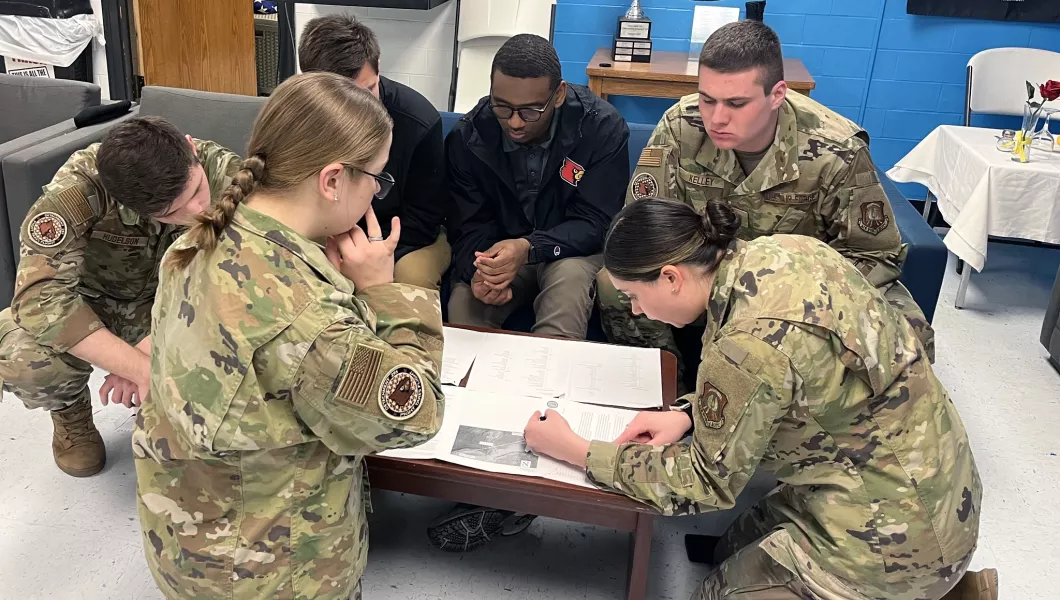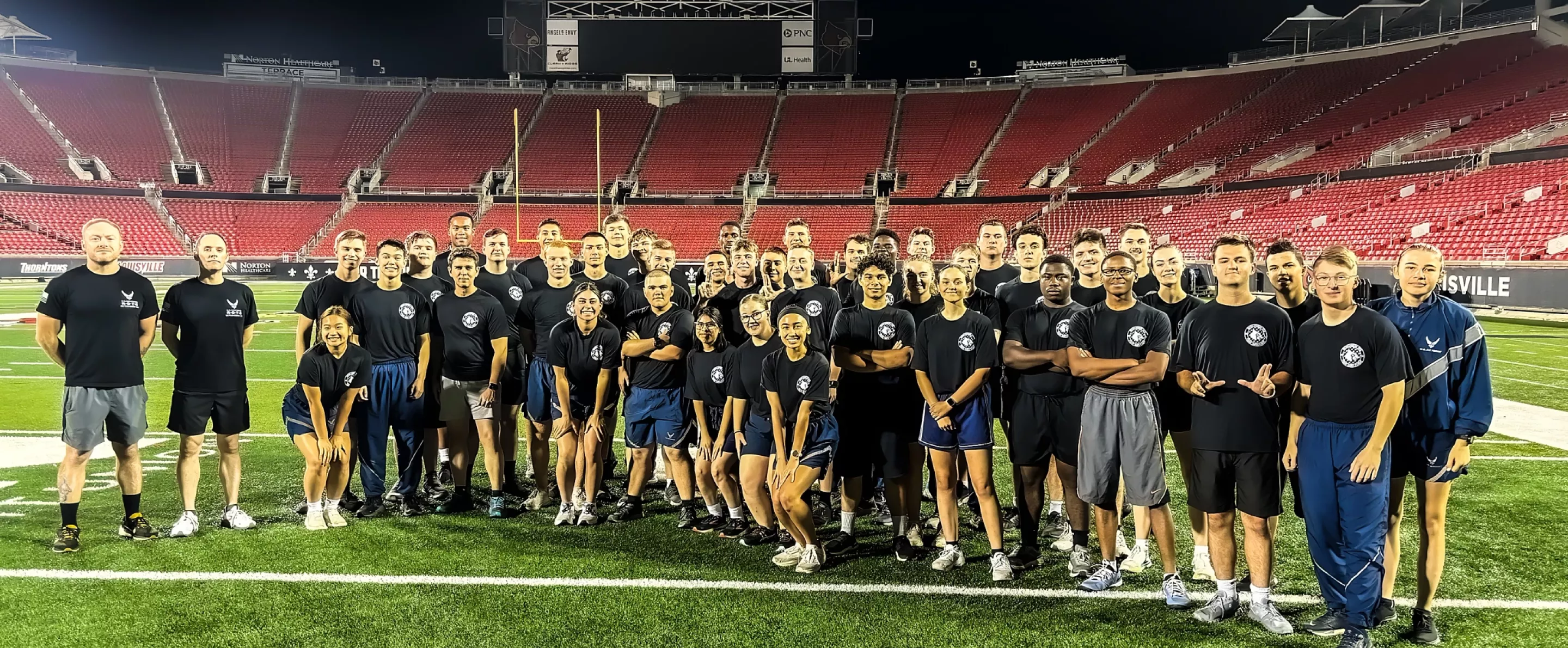Launch Your Future in Air Force ROTC
Ready to go beyond the ordinary college experience? At Air Force ROTC Detachment 295, you'll join an elite team of future leaders while earning your degree. Our program combines hands-on leadership training, exciting aviation opportunities, and small, personalized classes that will challenge and inspire you.
As a cadet, you'll train for a career in the Air or Space Force while earning scholarships to help pay for college. You'll learn directly from experienced military leaders and have the opportunity to participate in unique flying programs. Along the way, you'll build lifelong friendships with fellow cadets who share your drive and determination.
Whether you dream of flying cutting-edge aircraft or leading space operations, Air Force ROTC is your launchpad to an extraordinary future. Join us at Det 295 and turn your ambitions into reality.


